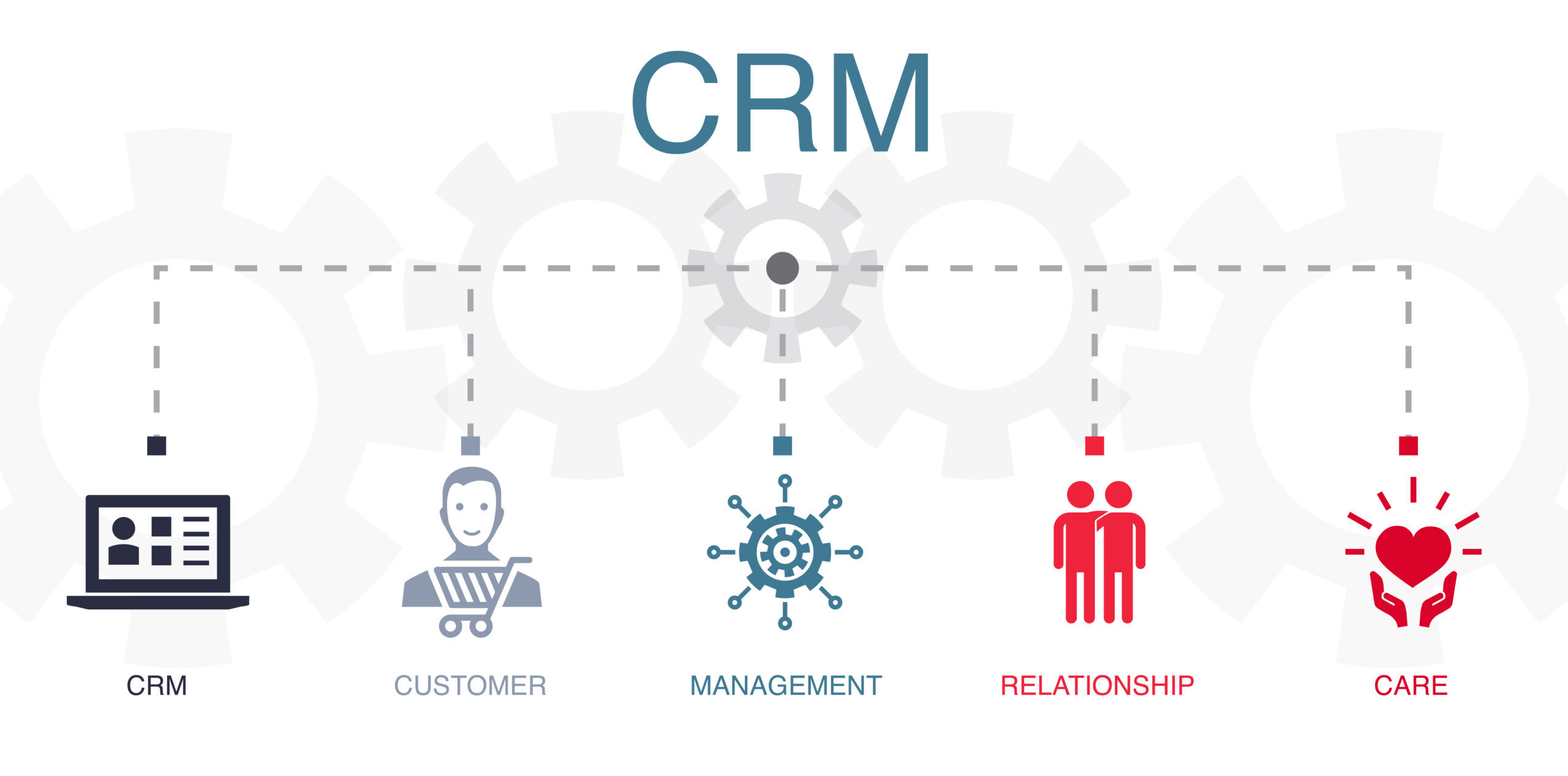Essential Customer Relationship Management Best Practices for Businesses
- 1 10 Best Practices For Customer Relationship Management
- 1.1 Data Quality Maintenance
- 1.2 Personalization
- 1.3 Integration across Systems
- 1.4 Customer Segmentation
- 1.5 Training and Support
- 1.6 Feedback and Analytics
- 1.7 Security Measures
- 1.8 Regular Updates and Maintenance
- 1.9 Customer-Centric Approach
- 1.10 Continuous Improvement
- 2 Conclusion
Building and sustaining strong customer relationships is crucial for long-term success in the dynamic and competitive business environment. Customer Relationship Management (CRM) has become a strategic necessity that enables businesses to attract new customers and retain and nurture existing ones. With the advancement of technology, the best practices in CRM are constantly evolving. Therefore, companies need to keep up with the latest trends and methodologies.
Customers expect instant connectivity and excellent service. Therefore, businesses must adopt essential CRM best practices to thrive and succeed in the long run—these key elements of effective CRM strategies and their pivotal role in building long-lasting customer relationships. To unlock the full potential of their customer relationships, businesses must navigate the complexities of CRM, which involves harnessing advanced technologies and fostering a customer-centric culture. Engage with Managed IT Services experts to leverage the power of CRM in your business.
10 Best Practices For Customer Relationship Management
Data Quality Maintenance
Maintaining data quality is an essential best practice for businesses regarding customer relationship management (CRM). Accurate and up-to-date customer data is crucial for effective communication, personalized marketing campaigns, and seamless customer experience.
To ensure data quality, businesses should establish processes and protocols for data entry and regularly clean and update their CRM database. This includes verifying contact information, removing duplicate entries, and addressing inconsistencies or errors. Businesses can enhance their CRM efforts by prioritizing data quality maintenance and building stronger customer relationships. If you want to improve data quality for your business, contact the IT Support team.
Personalization
Personalization is a crucial best practice for businesses regarding customer relationship management (CRM). Customers expect personalized experiences and brand interactions in today’s competitive business landscape. You can create a stronger connection and build trust by tailoring your communication and marketing efforts to each customer.
This can be achieved by using the customer’s name in emails, offering personalized product recommendations based on their past purchases or browsing history, and sending targeted promotions that align with their preferences. Implementing personalization strategies in your CRM efforts can help you stand out and foster long-term customer relationships.
Integration across Systems
Effective customer relationship management (CRM) requires integrating systems across businesses. By integrating CRM with other systems, such as marketing automation, sales, and customer support, companies can streamline their processes and ensure that data is shared seamlessly across departments.
This integration allows for a holistic view of the customer, enabling businesses to provide personalized and consistent experiences at every touchpoint. Integrating CRM with other systems can also automate tasks and workflows, improving efficiency and reducing manual errors.
Customer Segmentation
Implementing customer segmentation as a best practice in customer relationship management (CRM) is essential for businesses to succeed. By dividing your customer base into distinct segments based on shared characteristics or behaviors, you can better understand their needs and preferences. This allows you to tailor your marketing efforts and communication strategies to each segment, increasing the likelihood of engaging and retaining customers.
Customer segmentation can be based on various criteria, such as demographics, purchasing behavior, or psychographic factors. Businesses can optimize their CRM efforts by implementing effective customer segmentation strategies and attracting and retaining valuable customers.
Training and Support
Effective customer relationship management (CRM) practices require proper training and support for businesses. It is essential to provide comprehensive training to employees, enabling them to understand how to use the CRM software effectively and maximize its capabilities. This ensures the software is used optimally, leading to better customer service and increased profits.
Additionally, ongoing support should be provided to address any questions or issues that may arise during the implementation and use of the CRM system. This helps employees feel supported and confident in utilizing the CRM system effectively, ultimately improving customer relationships and business success.
Feedback and Analytics
Feedback and analytics are essential to effective business customer relationship management (CRM). By actively seeking customer feedback, businesses can gain valuable insights into their preferences, needs, and satisfaction levels. This feedback can then improve products, services, and overall customer experience.
In addition, analyzing customer data and behavior through CRM software can provide businesses with actionable insights that can drive targeted marketing campaigns and personalized communication. By leveraging feedback and analytics, companies can enhance customer satisfaction, loyalty, and bottom line.
Security Measures
Ensuring the security of customer data is an essential best practice for businesses implementing customer relationship management (CRM) systems. With the increasing number of data breaches and cyber threats, it is crucial to take proactive measures to protect sensitive customer information.
Some critical security measures to consider include implementing strong access controls and user authentication protocols, encrypting data at rest and in transit, regularly updating software and patches to address vulnerabilities, conducting regular security audits and penetration testing, and educating employees about best practices for data security.
Regular Updates and Maintenance
Regular updates and maintenance are essential best practices for effective customer relationship management (CRM) in businesses. Keeping your CRM system updated with accurate and current information is crucial for providing excellent customer service and ensuring that your sales and marketing efforts are targeted and effective.
Regularly updating customer profiles, contact information, and interactions helps you understand your customers’ needs and preferences, allowing you to provide personalized experiences. Additionally, performing regular maintenance tasks such as data cleansing, deduplication, and system backups ensures the integrity of your CRM data. It prevents any issues or errors from impacting your business operations.
Customer-Centric Approach
A customer-centric approach is a crucial best practice for businesses implementing Customer Relationship Management (CRM) strategies. Companies can foster stronger relationships and increase customer loyalty by prioritizing customers’ needs, preferences, and satisfaction.
This involves gathering and analyzing customer data to better understand their behaviors and preferences, tailoring communication and marketing efforts to meet their specific needs, and providing exceptional customer service at every touchpoint. A customer-centric approach also involves actively seeking customer feedback, whether through surveys or direct communication, to improve products and services continuously.
Continuous Improvement
Incorporating continuous improvement in customer relationship management (CRM) is essential for businesses to thrive and succeed. Companies can continuously evaluate and refine CRM strategies to meet their customers’ evolving needs and expectations. This involves regularly reviewing customer feedback, analyzing data, and identifying areas for improvement.
Businesses should also invest in ongoing employee training and development to ensure they have the skills and knowledge to manage customer relationships effectively. Additionally, staying up-to-date with advancements in CRM technology can help businesses streamline their processes and provide a better overall customer experience.
Conclusion
Implementing essential customer relationship management (CRM) best practices is crucial for businesses that aim to thrive in today’s competitive landscape. By prioritizing customer-centric approaches, leveraging technology for data-driven insights, fostering strong communication, and nurturing long-term relationships, organizations can create meaningful connections with their customers. Integrating these CRM best practices enhances customer satisfaction, strengthens brand loyalty, drives profitability, and positions businesses for sustained success in the dynamic marketplace.


















